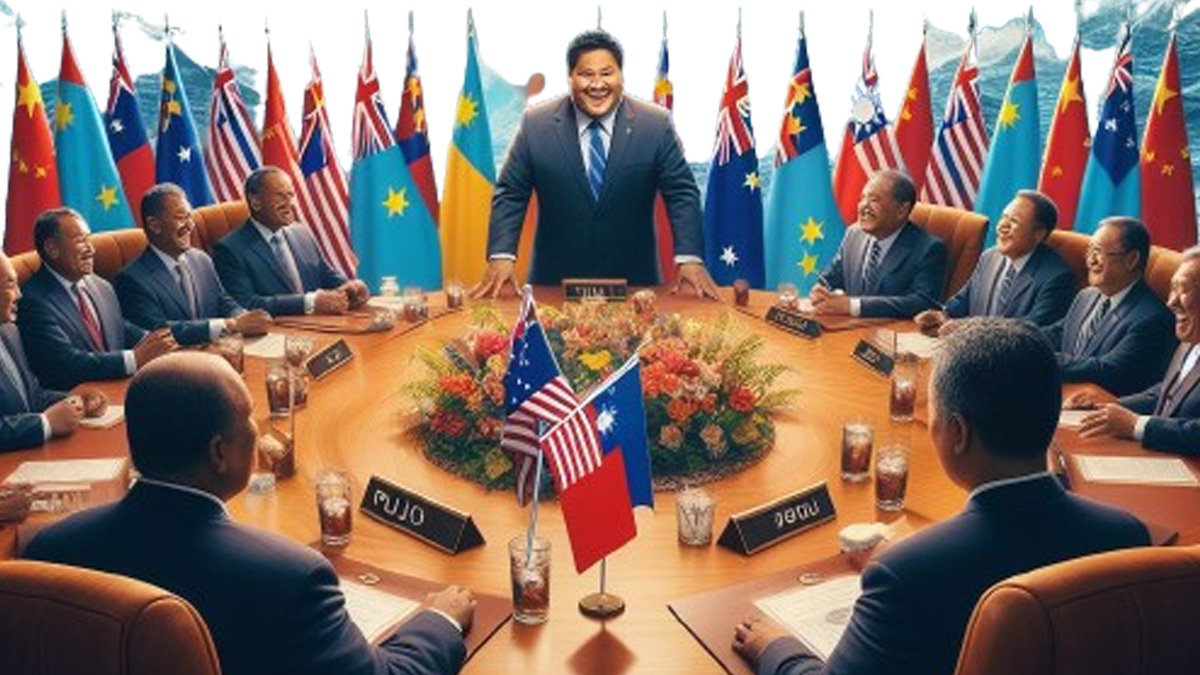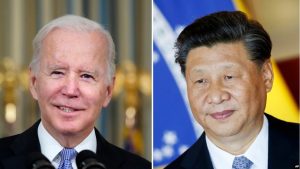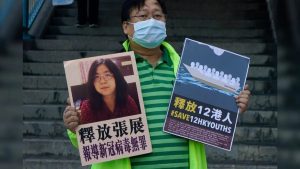
Tuvalu’s New Government Affirms Continued Diplomatic Ties with Taiwan Amidst China Pressure
South Pacific Nation to Reevaluate Security Pact with Australia

Tuvalu’s newly inaugurated government has affirmed its commitment to maintaining diplomatic ties with Taiwan, rebuffing pressure from Beijing. However, it plans to review a recent security pact with Australia, citing concerns about transparency and sovereignty.
Prime Minister Feleti Teo and his Cabinet ministers were sworn in following last month’s general election in the strategically significant nation of 11,500 people.
Campaign debates centered on whether Tuvalu should switch its allegiance from Taiwan to Beijing. Despite some candidates advocating for a diplomatic realignment, the new administration released a Statement of Priorities reaffirming Tuvalu’s longstanding relationship with Taiwan, established since its independence in 1978.
The statement expressed Tuvalu’s intention to explore avenues to strengthen and enhance its ties with Taiwan further.
In response, Chinese Foreign Ministry spokesperson Mao Ning urged Tuvalu to recognize China instead. However, Tuvalu remains steadfast in its support for Taiwan, one of the few countries maintaining official diplomatic relations with the self-governed democracy.
The decision gains significance following Nauru’s recent decision to sever ties with Taiwan, increasing diplomatic pressure on Taipei.
Tuvalu also plans to revisit a security pact with Australia announced last November. While the government supports the pact’s objectives, it raised concerns about the lack of transparency and consultation during its negotiation.
The agreement, aimed at addressing climate change-induced threats and bolstering security cooperation, grants Australia veto power over Tuvalu’s security and defense agreements with other nations, including China.
Tuvalu, highly vulnerable to rising sea levels and extreme weather events due to its low-lying geography, seeks to renegotiate the treaty with a focus on safeguarding its sovereignty.
Under the pact, Australia pledged assistance to Tuvalu in response to natural disasters, pandemics, and military threats. In return, Australia gains veto power, perceived as a deterrent against potential Chinese military influence in the region.
The move underscores broader geopolitical tensions in the Pacific, with the United States and Australia deepening engagement with island nations amidst China’s expanding presence. The security pact follows China’s agreement with the Solomon Islands in 2022, raising concerns about Beijing’s ambitions for a naval base in the South Pacific.














Comments